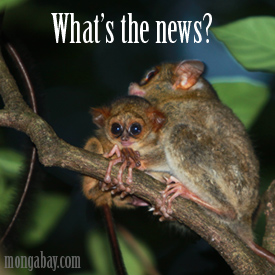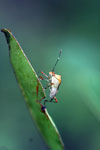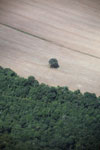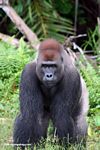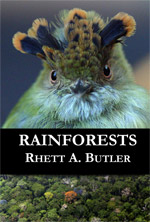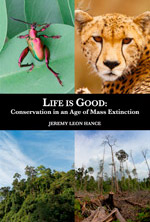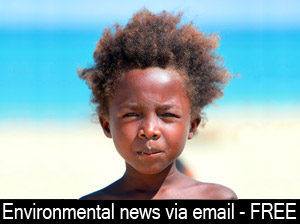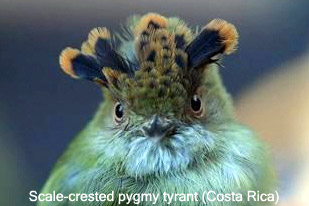Brazilian beef giant on defensive on its Amazon sourcing practices
mongabay.comJune 08, 2012

The sharp contrast between forest and pasture in Mato Grosso. Photo by Rhett Butler.
On Wednesday Greenpeace released what it termed a "crime file" [PDF] of evidence which is said shows JBS cannot prove that it is not buying cattle from ranches engaged in forest clearing or labor abuses. Under the terms of a landmark agreement signed in 2009, Brazil's cattle processing giants -- JBS, Mafrig, and Minerva -- committed to improving their sourcing policies to eliminate illegal deforestation from their supply chains.
But JBS quickly refuted Greenpeace's claims, stating that it the ranches in question are not on the government's environmental blacklist. In the case of one supplier, Fazenda Flor da Mata, JBS said it took immediate action once the ranch was blacklisted. JBS also asserted that it has "more than 500 employees directly involved in sustainability activities" and has "the most advanced and sophisticated systems in the area of sustainability in the beef sector in Brazil." JBS added it would take legal action against Greenpeace.
"The Company will legally challenge Greenpeace and will use all available legal channels to repair the material damage caused to the image of the Company through the disclosure of this incorrect information," said JBS in a statement.
Greenpeace told mongabay.com that is is investigating the points raised by JBS but added that it stands by the report.
"Any corrections that may be made will in no way affect the overall conclusion that JBS failed to fulfill its commitments under the 2009 Cattle Agreement," said Greenpeace via email. "None of the slaughterhouses has fulfilled the Cattle Agreement, including JBS. However Greenpeace has not discovered purchases directly or indirectly linked with illegalities in field research on Mafrig and Minerva as we have with JBS. Furthermore, JBS is the only slaughterhouse who has reduced their commitment to the Cattle Agreement from farms with new deforestation to illegal deforestation, thereby undermining the very core of the Agreement."
JBS in turn dismissed Greenpeace's charges.
"JBS is the company with [most] capacity to prove the origin of its cattle in Brazil. Neither [Mafrig nor Minerva] has the system that JBS has to control all business made with our suppliers," JBS told mongabay.com. "Each buy is checked in our control system."
The back-and-forth on the issue reflects a stark change from situation only a few years ago when none of the Brazil's slaughterhouses had policies to exclude beef and leather from recently deforested areas. Today Brazilian cattle giants, along with big supermarket chains, have pledged to phase the most destructive practices out of their supply chains. Some even compete for customers by highlighting their green policies. JBS, for example, closed its response to Greenpeace's report with a statement "[reaffirming] its commitment towards advancing initiatives in the social and environmental field."

A cattle herd wandering in the heart of Mato Grosso. Photo by Rhett Butler.
The 2009 Cattle Agreement was largely a product of a Greenpeace campaign that targeted overseas buyers of Brazilian leather and beef by linking their products to Amazon deforestation. In response, big brands like Nike and Walmart-Brazil demanded their suppliers establish policies to ensure greener sourcing.
Clearing for cattle ranching is the largest driver of deforestation in the Amazon. According to the Brazilian government, cattle pasture is the fate of more than 60 percent of deforested land.
Related articles

